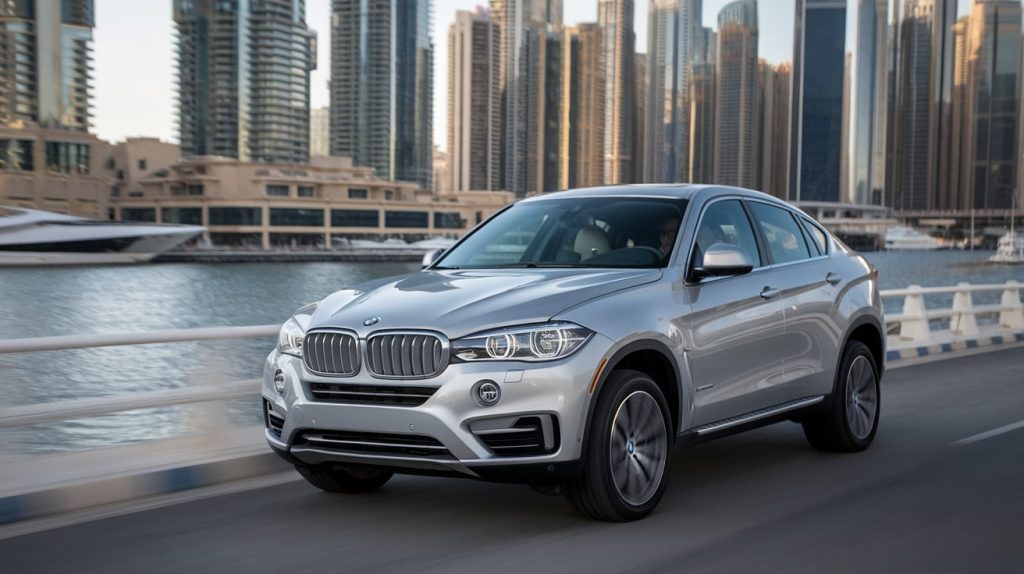
How to Avoid Overheating in Your BMW | Essential Tips
Have you ever observed the temperature indicator on your BMW approaching the danger zone? Especially when it can result in expensive repairs and malfunctions, BMW engine overheating is one of the last things you want to deal with. When your gorgeous BMW’s engine starts to fail, nobody wants to be stranded on the side of the road, perspiring uncontrollably. But don’t worry, if you know what to do and where to look, preventing overheating is not as difficult as you might think.
The crucial advice you need to prevent BMW engine overheating is covered in this blog post. These pointers will help you steer clear of the dreaded overheating catastrophe, whether you’re driving on the highways or negotiating the summer heat in Dubai.
1. Regularly Check the Coolant Levels
Coolant levels are crucial to the cooling system that supports your BMW’s engine. The engine may overheat if the coolant level is low because it won’t be able to control its temperature. If you live in a hot climate like Dubai, where heat can significantly affect your engine’s cooling efficiency, check your coolant levels at least once a month.
- Tip: Use the coolant that the manufacturer recommends for your BMW at all times. Using the incorrect kind increases the risk of overheating and can harm the system.
2. Inspect the Radiator and Hoses Regularly
Because it dissipates heat away from the engine, the radiator is an essential component of your BMW’s cooling system. It may eventually become clogged with debris or even experience leaks. Additionally, the coolant flow may be compromised by cracked and leaking radiator hoses.
- Tip: Examine your radiator and its hoses on a regular basis. To avoid the BMW engine overheating, have any wear or leaks fixed right away.
3. Clean the Radiator Fins
The radiator fins may become clogged with dust, dirt, and other debris, which would hinder their ability to dissipate heat effectively. This is particularly troublesome when traveling through arid regions or urban streets where pollution is more common. As part of your routine maintenance, you should clean the radiator fins.
- Tip: Clean the radiator fins gently with a soft brush or compressed air. Before cleaning, be sure to switch off the engine and let it cool.
4. Monitor Your Thermostat
Your BMW’s thermostat controls the coolant flow to prevent overheating of the engine. BMW engine overheating can result from a thermostat that malfunctions or becomes stuck in the closed position, preventing coolant from circulating properly.
- Tip: It may be time to replace the thermostat if your engine is frequently overheating. One of the most frequent reasons for engine overheating is a broken thermostat.
5. Change Your Oil Regularly
In addition to lubricating the moving components, your BMW’s engine oil lowers friction, which aids in engine cooling. Your engine will have to work harder and get hotter if the oil becomes thicker and loses its cooling ability.
- Tip: To keep your engine running cool and smoothly, always choose high-quality oil and follow the manufacturer’s recommended oil change intervals.
6. Keep Your BMW’s Cooling Fan in Top Shape
In order to cool the coolant and engine, the cooling fan assists in drawing air through the radiator. Overheating may result from a malfunctioning fan. Make sure the fan is in good working order and activates when required. If you hear grinding or rattling around the fan area, it may overlap with issues we explained in BMW Fan Noise.
- Tip: Get your fan checked right away if you notice that it isn’t turning on when it should or if you hear strange noises.

How BMW’s Advanced Cooling System Helps Prevent Overheating
Some of the most cutting-edge cooling systems in the automotive industry are found in BMWs. Even under harsh circumstances, these systems are made to maintain the engine’s ideal temperature. Radiators, fans, thermostats, and sensors are some of the parts of the system that cooperate to monitor and regulate the engine’s temperature.
BMW’s Intelligent Sensors:
- Smart sensors that continuously check engine temperature and transmit data in real time to the car’s onboard computer are standard on many BMW models.
- This makes it possible for the engine to be adjusted automatically to prevent overheating.
Efficiency of Water Pumps:
- Your BMW’s water pump is designed to effectively move coolant throughout the engine.
- Maintaining it is essential to the health of your engine because if it fails, it can cause overheating very quickly.
Knowing about these cutting-edge cooling technologies can reassure you that your BMW is designed to withstand challenging circumstances. To make sure they continue to operate correctly over time, routine maintenance is still essential.
The Role of Engine Oil in Preventing Overheating
Oil is essential to the cooling and lubrication of your BMW engine. By assisting in the dissipation of heat from the moving components, engine oil lowers friction and guarantees smooth operation. Friction rises when there is insufficient oil or if the oil is too old, raising engine temperatures and increasing the chance of overheating.
- The Significance of Oil Quality
Better heat dissipation and engine performance are ensured by high-quality oil’s ability to retain its viscosity at high temperatures. Older or low-quality oil can thicken excessively and lose its capacity to efficiently control heat, which will strain your engine more. - Frequent Oil Changes Are Essential
Engine oil stays fresh and efficient when it is changed at the recommended intervals. If left unchecked, old oil’s reduced efficiency can cause overheating issues and ultimately more serious engine damage.
To avoid BMW engine overheating, routine oil checks and timely oil changes are crucial. One of the best defenses against engine failure is to keep your engine oil clean and in good condition.

Stop BMW Engine Overheating Before It Stops You
Although nobody wants to deal with a BMW engine overheating, it is undoubtedly preventable. Your BMW can avoid overheating and continue to operate at its peak for many years to come if you continue to be proactive with routine maintenance, closely monitor your cooling system, and take care of any possible problems early. Take action now to prevent the issue before your engine reaches its breaking point.
Do you need help keeping your BMW in good condition? For a professional inspection, get in touch with us right now, and we’ll make sure your engine remains as cool and effective as you do!
Frequently Asked Questions (FAQ) about BMW Engine Overheating
- Why does a BMW engine overheat?
BMW engine overheating can be caused by a number of things, such as low coolant levels, a broken water pump, a malfunctioning thermostat, clogged radiators, or a damaged cooling fan. Extreme weather or bad driving practices can also make it worse. The key to avoiding these problems is routine maintenance.
- How frequently should I check the coolant levels in my BMW?
At least once a month, you should check your coolant levels, particularly before lengthy drives or in hot weather. To keep your BMW from overheating, you must replace any coolant that has dropped with the appropriate kind.
- Can my engine overheat due to a dirty air filter?
Indeed, a dirty or clogged air filter can limit engine airflow, which makes it more difficult for your BMW to control its temperature. Although it isn’t the direct cause of overheating, it can raise operating temperatures by impairing engine performance. A clogged filter also stresses airflow and can worsen BMW AC Noise complaints.
- How can I tell if the radiator on my BMW is clogged?
An engine that regularly overheats even after adding coolant is a common indication of a clogged radiator. Additionally, you might observe inadequate air circulation or a discernible decline in cooling efficiency. Have a qualified mechanic examine and clean the radiator if you think it may be clogged.
- Can my BMW engine overheat when I drive in heavy traffic?
Indeed, heavy traffic can hinder the effectiveness of your BMW’s cooling system, particularly during hot weather. Overheating is more likely in stop-and-go traffic because there is less airflow around the engine. Steer clear of prolonged idling and keep an eye on your engine’s temperature at all times.
